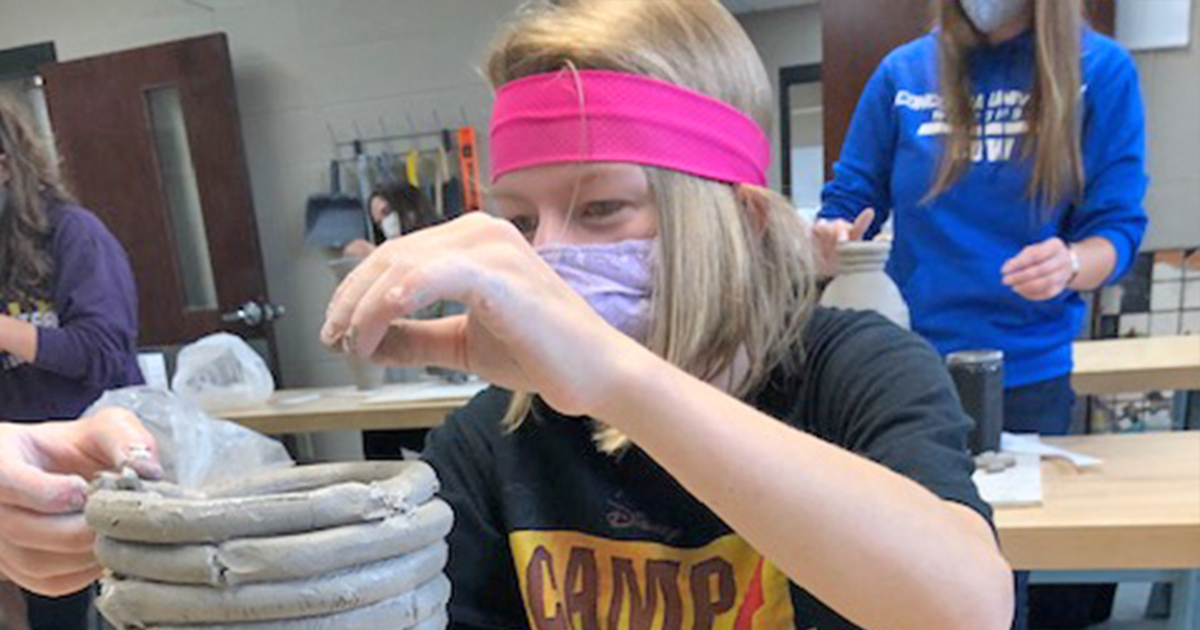
Those with intellectual and developmental disabilities (I/DD) face a variety of challenges, from lack of suitable housing to unemployment, poor health and difficulty connecting with their community. The COVID-19 pandemic has only complicated these challenges and highlighted the ongoing need to address them.
For Bethesda Lutheran Communities, an LCMS Recognized Service Organization, that urgency was the driving force behind this year’s National Developmental Disabilities Awareness Month, which is observed annually during March.
“COVID-19 really demonstrated that people with intellectual and developmental disabilities are among the most vulnerable among us,” said Mike Thirtle, Bethesda president and CEO. “At the same time, they and their families have shown incredible resilience and a renewed desire for lives filled with independence and potential. It is this promise for the future that motivates us to work every day on their behalf, and to make the world more inclusive and welcoming for people of all abilities.”
Progress made, but still room for improvement
Developmental Disabilities Awareness Month was first proclaimed by U.S. President Ronald Reagan in 1987. The proclamation called upon all Americans to provide support and opportunities for individuals with developmental disabilities to reach their potential. With the enactment of the Americans with Disabilities Act in 1990, workplace discrimination against individuals with developmental disabilities became a legally punishable offense.
While support for those with disabilities has improved over the years, there is still room for improvement. In 2020, the Annals of Internal Medicine reported that people with Down syndrome, a developmental disability, are four times more likely to be hospitalized for COVID-19 and 10 times more likely to die from the illness. Yet in some locations, people with I/DD are pushed to the back of the line for COVID-19 treatment. Bethesda has long advocated for the elimination of inequities in health care and for access to holistic care, which includes behavioral services provided by trained professionals.
Opportunities in housing, community
Even though many large institutions housing people with I/DD have fallen out of favor, nearly 700,000 people live in congregate settings such as group homes, intermediate care facilities and institutions, according to a study reported in the Harvard Political Review. Living in close quarters, they are especially at risk of infection during COVID-19 and similar emergencies, despite the diligent best efforts of their direct support professional staff.
Bethesda advocates and provides for independent housing options for people with I/DD, recognizing their desire to become included in their community. One such independent housing option is Bethesda’s Cornerstone Village, a first-of-its-kind residential community in Minnesota’s Twin Cities that welcomes people of all abilities, including those with I/DD. Given that many people with I/DD live near the poverty level, with average earnings of an individual on Supplemental Security Income at $9,156 per year, affordability is crucial — and a key component of the Cornerstone Village model. The universal design of Cornerstone Village units includes accessibility features and technologies that keep residents safe and help them control their daily lives to the greatest extent possible.
“Our hope is that residents of Cornerstone Village feel a strong connection to the community around them and are empowered to pursue employment, social, faith and other important opportunities,” said Thirtle. “We are looking across the country for our next Cornerstone Village locations, and we are confident this model of residential community will be a game-changer that improves lives.”
Faith front and center
According to the Collaborative on Faith & Disabilities, of the 84% of people with disabilities who say their faith is important to them, only 45% attend a place of worship at least monthly.
While a connection to faith is important at every age, it is an area of special focus for the college-age adults Bethesda serves. This is witnessed at Bethesda College, a two-year post-secondary college program at Concordia University Wisconsin, Mequon, Wis., that provides young adults with I/DD the opportunity to turn their dreams of a college experience and education into reality. Students attend academic classes, live on campus, learn life skills and take part in campus and community life. This includes sports, clubs and spiritual activities.
“Faith is a crucial component to the Bethesda College experience, as it is for Concordia University Wisconsin students generally,” said Dr. Kira Collins, director of Bethesda College. “Our students are encouraged to attend chapel services weekdays and on weekends, as well as join Bible studies and Christian clubs for men and women, including a weekend retreat in the fall and spring semesters.”
Getting involved
Learn more about Developmental Disabilities Awareness Month and Bethesda’s campaign at includeallabilities.com. Learn more about Bethesda at bethesdalc.org.
Posted May 10, 2021